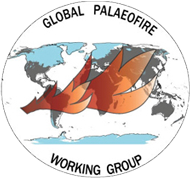
Petersham, USA
 yale.edu
yale.edu
 PAGES' Global Palaeofire Working Group (GPWG) oversees the Global Charcoal Dataset (GCD), which was developed to facilitate research on fire in the Earth system.
PAGES' Global Palaeofire Working Group (GPWG) oversees the Global Charcoal Dataset (GCD), which was developed to facilitate research on fire in the Earth system.
Our group provided the first reconstructions of global biomass burning on centennial to millennial time scales. As the database continues to grow, we are developing a new online interface to access the data, and more scientific analyses are becoming possible.
This workshop will focus on comparing GCD analyses with output from global fire models of varying complexity, Earth system models with fire modules, and emissions models, and fire data from a variety of archives, including ice cores, fire scars, and historical records from the past millennium. All research scientists with an interest in paleofire are invited to apply to attend.
Previous workshops have resulted in collaborative papers in journals such as Climate Dynamics, Nature Geoscience, Global Biogeochemical Cycles, and the Proceedings of the National Academy of Sciences.
In addition to PAGES, this workshop is also supported by the National Science Foundation (NSF). It is organized as part of an NSF-funded project called Testing Hypotheses About Fire Using Data Syntheses and Fire Modeling, and aims to synthesize diverse long-term fire history data from a variety of sources, including sediment records, ice cores, tree rings, and historical datasets.
Workshop Objectives
(1) Review a) current data inventory (GCDv4 site lists and maps for past millennium, past 200 years, and past 50 years); b) current paleo capabilities of available fire models; and c) global and regional non-charcoal fire & emissions data > 50 years.
(2) Present current tools for GCD analysis and gridded map-making
(3) Use data-model comparisons to better understand variability in biomass burning during the past millennium
(4) Test hypotheses about natural and human impacts on fire activity during the past millennium
(5) Discuss the development of Fire-Human-Biosphere Interactions (Fire HuB)
Venue
Harvard Forest
324 North Main St.
Petersham, Massachusetts, USA
http://harvardforest.fas.harvard.edu/
To register
Email jennifer.marlon yale.edu (jennifer[dot]marlon[at]yale[dot]edu) with your name, position, affiliation and a short paragraph explaining why you would like to attend the workshop, what you hope to contribute to the efforts, and what you are most interested in studying. Please note whether you will need funding support to attend the workshop.
yale.edu (jennifer[dot]marlon[at]yale[dot]edu) with your name, position, affiliation and a short paragraph explaining why you would like to attend the workshop, what you hope to contribute to the efforts, and what you are most interested in studying. Please note whether you will need funding support to attend the workshop.
The deadline for applications is May 5, 2015.
Limited financial support from PAGES is available to supplement participant travel – particularly for Early Career scientists and researchers from less developed countries.
More information
For questions please contact Jennifer Marlon (Jennifer.Marlon yale.edu (Jennifer[dot]Marlon[at]yale[dot]edu)).
yale.edu (Jennifer[dot]Marlon[at]yale[dot]edu)).
Post-meeting material
PAGES Magazine workshop report